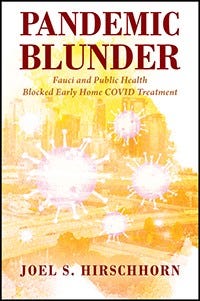There are a lot of scams now from those offering cures for long COVID symptoms.
But an important recent development is that some medical centers are offering cognitive rehabilitation to patients with long COVID — symptoms that persist several months or longer after an infection that can’t be explained by other medical conditions. According to the Centers for Disease Control and Prevention, about 1 in 4 older adults who survive COVID have at least one persistent symptom.
A number of experts are enthusiastic about the potential of cognitive rehabilitation. “Anecdotally, we’re seeing a good number of people [with long COVID] make significant gains with the right kinds of interventions,” said Monique Tremaine, director of neuropsychology and cognitive rehabilitation at Hackensack Meridian Health’s JFK Johnson Rehabilitation Institute in New Jersey.
Among the post-COVID cognitive complaints being addressed are problems with attention, language, information processing, memory, and visual-spatial orientation. A recent review in JAMA Psychiatry found that up to 47% of patients hospitalized in intensive care with COVID developed problems of this sort. Meanwhile, a new review in Nature Medicine found that brain fog was 37% more likely in nonhospitalized COVID survivors than in comparable peers who had no known COVID infections.
Getting help starts with an assessment by a rehabilitation professional to pinpoint cognitive tasks that need attention and determine the severity of a person’s difficulties. One person may need help finding words while speaking, for instance, while another may need help with planning and yet another may not be processing information efficiently. Several deficits may be present at the same time.
Next comes an effort to understand how patients’ cognitive issues affect their daily lives. Among the questions that therapists will ask, according to Jason Smith, a rehabilitation psychologist at the University of Texas Southwestern Medical Center in Dallas: “Is this [deficit] showing up at work? At home? Somewhere else? Which activities are being affected? What’s most important to you and what do you want to work on?”
To address impairments that interfere with people’s daily lives, a therapist will work on practical strategies with patients. Examples include making lists, setting alarms or reminders, breaking down tasks into steps, balancing activity with rest, figuring out how to conserve energy, and learning how to slow down and assess what needs to be done before taking action.
A growing body of evidence shows that “older adults can learn to use these strategies and that it does, in fact, enhance their everyday life,” said Alyssa Lanzi, a research assistant professor who studies cognitive rehabilitation at the University of Delaware.
Along the way, patients and therapists discuss what worked well and what didn’t, and practice useful skills, such as using calendars or notebooks as memory aids.
“As patients become more aware of where difficulties occur and why, they can prepare for them and they start seeing improvement,” said Lyana Kardanova Frantz, a speech therapist at Johns Hopkins University. “A lot of my patients say, ‘I had no idea this [kind of therapy] could be so helpful.’”
Johns Hopkins has been conducting neuropsychiatric exams on patients who come to its post-COVID clinic. About 67% have mild to moderate cognitive dysfunction at least three months after being infected, said Dr. Alba Miranda Azola, co-director of Johns Hopkins’ Post-Acute COVID-19 Team. When cognitive rehabilitation is recommended, patients usually meet with therapists once or twice a week for two to three months.
If you’re noticing cognitive changes of concern, ask for a referral from your primary care physician to an occupational or speech therapist, said Erin Foster, an associate professor of occupational therapy, neurology, and psychiatry at Washington University School of Medicine in St. Louis. Be sure to ask therapists if they have experience addressing memory and thinking issues in daily life, she recommended.
“If there’s a medical center in your area with a rehabilitation department, get in touch with them and ask for a referral to cognitive rehabilitation,” said Smith, of UT Southwestern Medical Center. “The professional discipline that helps the most with cognitive rehabilitation is going to be rehabilitation medicine.”
This was the first book that detailed how Fauci messed up pandemic management. Back in 2021 when it came out many groups refused to review it because it was deemed so controversial.






If this sort of thing ever works, it's a long shot. See my post following for a more comprehensive summary of the "long hauler's" thing, what treatments are far more likely to work, and how to get the medication. https://robertyoho.substack.com/p/129-the-clot-shot-is-the-cause-of#details